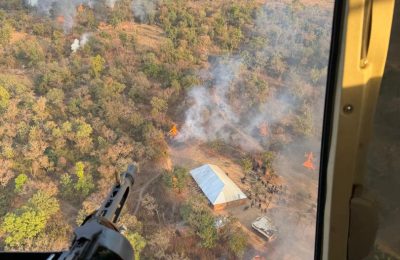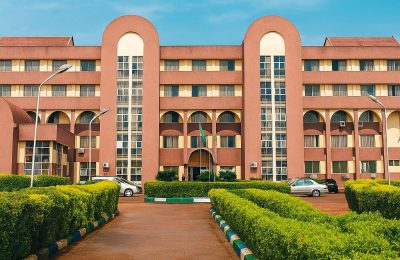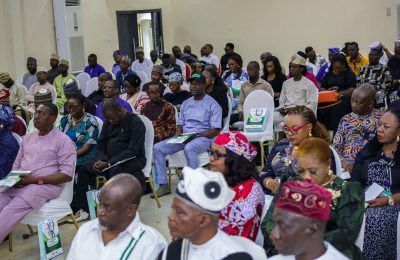State Police Germaine , not expedient.
As the conversation around the establishment of state police continue to elicit reactions from. Nigerians of all walks of lives, Dr. ADUOJO JEROME AGI noted that although, the state police is ripe , but, the attitude and dispositions of the elites may highjack the laudible idea.
Writes Aduojo J. Agi, Ph.D.
*jeromeagi@yahoo.com.*
For months now, Nigeria’s political establishment has been drumming up support for the creation of state police, presenting it as the long-awaited solution to the country’s deepening insecurity. Proponents insist that decentralizing policing will bring security closer to the people and give state governments the tools to combat banditry, terrorism, and kidnapping.
But Nigeria’s problem is not the absence of state police. The problem is political will, corruption, and collusion within the very federal security agencies constitutionally mandated to protect lives. Creating state police under the current circumstances will not end insecurity—it will only multiply the dangers.
*COLLUSION AT THE HEART OF INSECURITY* .
Across Nigeria, from Zamfara to Benue, Kaduna to Plateau, communities have long alleged what officials rarely admit: elements within the police, military, and even government collaborate with the very groups killing citizens. Troops mysteriously withdraw hours before attacks. Security forces look the other way as bandits and herdsmen sack villages. Kidnappers operate with military-grade weapons and intelligence.
Let us be blunt. Nigeria’s insecurity persists not because our forces cannot act, but because they have chosen not to act. They know where the bandits are, when they strike, how to flush them out, and why they remain untouched. The unspoken truth is chilling: insecurity thrives because it serves political and economic interests.
*THE REAL AGENDA BEHIND STATE POLICE* .
In this context, the president’s renewed push for state police is troubling. It increasingly looks less like a security reform and more like a political project. Nigeria’s governors—many of them already authoritarian in their states—would see state police as a ready-made weapon to silence opponents, intimidate dissenters, and manipulate elections.
The argument that state police will enhance security assumes that those in power want security in the first place. If federal police and the military, present in every state, have failed to protect Nigerians, what guarantees that state-controlled police will do better? With Nigeria’s fragile democracy, state police risk becoming the private armies of governors.
*WASTED FEDERAL CAPACITY.*
Nigeria already has one of the largest security networks in Africa: the police, army, navy, air force, DSS, civil defense, and paramilitary forces. Every state has a federal police command and military formations. What is missing is not capacity—it is leadership, accountability, and commitment.
Instead of building another layer of policing, the federal government should first reform and empower the institutions it already controls. Professionalize the police. Root out corruption. End political interference in military operations. Fund and equip forces adequately. Until this is done, state police will simply replicate federal failures at a smaller, more dangerous scale.
*THE BORDER FACTOR*
Equally critical is Nigeria’s porous borders. Insurgents, mercenaries, and arms traffickers move freely from Niger, Chad, and Cameroon. Yet the government has done little to secure these entry points. Without decisive border control, creating state police will not stop the flow of weapons and fighters fueling Nigeria’s crises.
Are neighboring states not silent collaborators by neglect? Why has Nigeria not taken stronger diplomatic or regional security actions? A thousand state police units cannot fix what open borders keep enabling.
*LESSONS FROM ABROAD*
*HISTORY OFFERS WARNINGS.*
Mexico decentralized policing, only for state and local forces to be captured by cartels. Corruption spread even faster.
Kenya’s community policing initiatives initially looked promising but collapsed when local warlords infiltrated them.
South Africa has provincial policing structures, yet violent crime continues to rise because corruption and inequality persist.
Nigeria risks repeating these mistakes if it rushes into state policing without first cleansing its federal institutions.
*WHAT MUST BE DONE INSTEAD*
1. Reform First, Decentralize Later – Clean up the federal police and military. Only after building trust and accountability should Nigeria consider devolving policing.
2. Accountability – Create independent oversight bodies to investigate collusion between security agencies and armed groups. Without consequences, impunity will continue.
3. Secure the Borders – Deploy surveillance technology, drones, and joint regional patrols to plug porous borders with Niger, Chad, and Cameroon.
4. Invest in Intelligence and Trust – Communities must see security forces as allies, not collaborators with killers. Rebuilding trust is critical for intelligence gathering.
5. De-weaponize Politics – Strengthen democratic institutions before handing governors police power that could easily be abused.
6. Address Root Causes – Insecurity thrives on unemployment, poverty, and social injustice. Jobs, education, and justice are as important as guns.
*CONCLUSION*
Nigeria does not lack security agencies; it lacks political will. Creating state police now is not the solution—it is a dangerous distraction. Unless existing institutions are reformed, unless collusion is punished, unless borders are secured, and unless political leaders truly commit to protecting lives, insecurity will remain.
State police, in the hands of Nigeria’s current political class, will not be a shield for the people. It will be another weapon of politics.
The real question is not whether Nigeria needs state police. The real question is why the government refuses to use the tools it already has to stop the bloodshed. Until that is answered, every new security reform will be another illusion.




